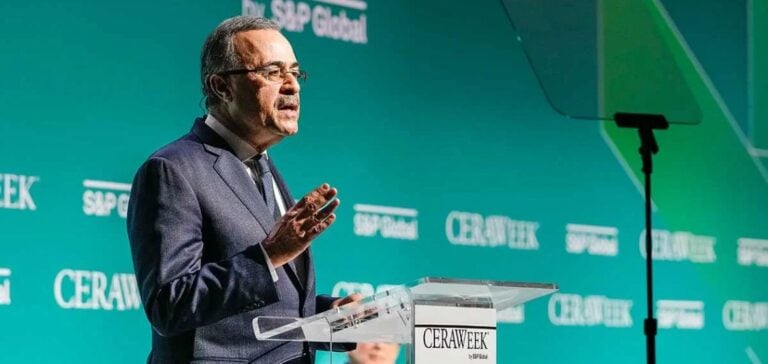“The current (energy) transition strategy is an apparent failure on most fronts,” said Amin Nasser at CERAWeek in Houston, Texas. Aramco ‘s CEO based his observation on the fact that fossil fuels still accounted for 82% of global energy consumption last year, a figure reported by KPMG.
Oil demand reaches record levels
Nasser pointed to projections by the International Energy Agency (IEA) for record oil demand this year. “This is not the future some had predicted”, he added, suggesting that peak oil and gas consumption would not be reached for a long time, and “probably not in 2030”.
ExxonMobil’s outlook on net zero emissions
In a separate interview with CERAWeek, ExxonMobil CEO Darren Woods shared a similar perspective. “As things stand, we are not on the road to zero (net greenhouse gas) emissions by 2050”, he said, underlining the difficulty of reducing emissions sufficiently without a significant cost to society.
Focus on fossils for better results
Nasser argued that reducing fossil fuel emissions brings better results than investing in renewables alone. He cited the transition from coal to natural gas in the United States, which halved greenhouse gas emissions, as an example of an effective approach.
COP28 established a path towards the gradual phase-out of fossil fuels. However, Nasser advocates economic pragmatism: “My proposal is this: we should put aside the fantasy of the end of oil and gas”. The latter suggests investing adequately in these energies, in line with realistic estimates of demand.






















